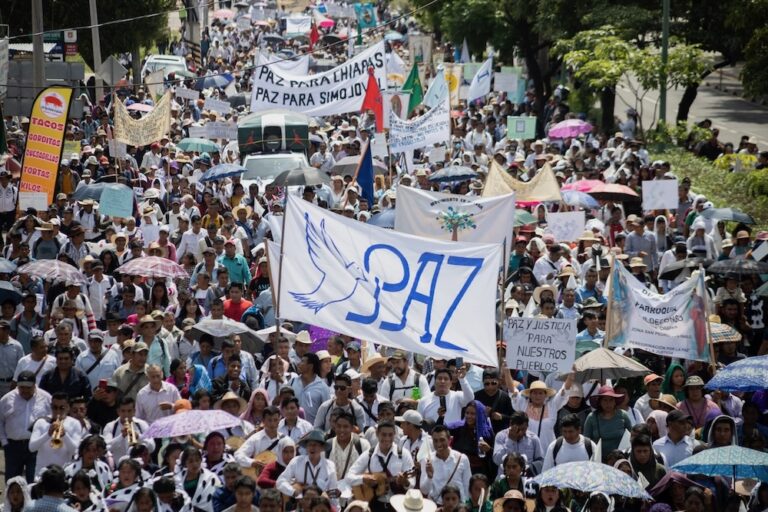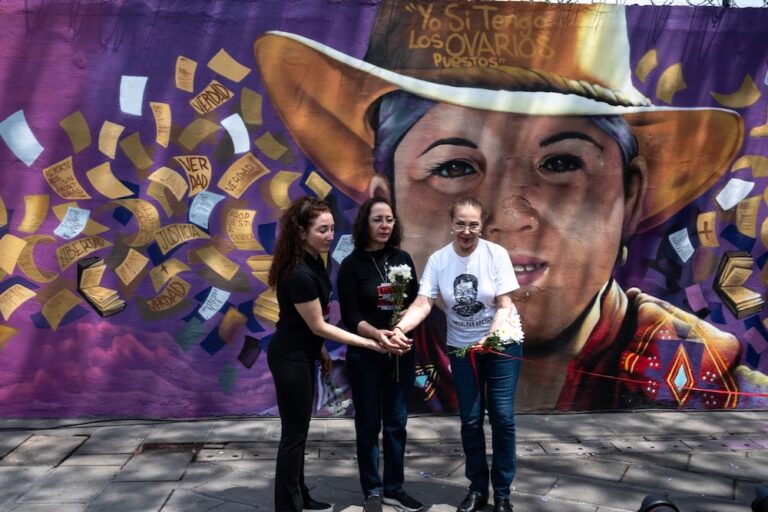(AMARC/IFEX) – The following is a 16 March 2009 joint statement by AMARC, ARTICLE 19, Reporters without Borders and four other organisations: Organisations denounce criminalisation of freedom of expression following filing of legal action against community radio station International organisations that defend freedom of expression, AMARC, ARTICLE 19 and RSF, as well as Mexican organisations, […]
(AMARC/IFEX) – The following is a 16 March 2009 joint statement by AMARC, ARTICLE 19, Reporters without Borders and four other organisations:
Organisations denounce criminalisation of freedom of expression following filing of legal action against community radio station
International organisations that defend freedom of expression, AMARC, ARTICLE 19 and RSF, as well as Mexican organisations, the Mexican Commission for the Defence and Promotion of Human Rights (la Comisión Mexicana de Defensa y Promoción de los Derechos Humanos, CMDPDH), the Centro de Derechos Humanos Miguel Agustín Pro Juárez, the Centro de Derechos Humanos Fray Francisco de Vitoria and the Red de Organizaciones Civiles de Derechos Humanos “Todos los Derechos para Todos y Todas”, have released a statement expressing their “denunciation of and extreme concern” with the criminal actions taken by the Interior Ministry (Secretaría de Gobernación) against members of the Monterrey community radio station Tierra y Libertad.
(On 12 March 2009, Héctor Camero, a member of the community, was summoned to appear before the prosecution.) The punishment the radio station members are facing is up to 12 years in prison and a fine of US$100,000. The signatories of the statement understand this as an attempt to criminalise the freedom of expression of a community station that has a long history of defending the rights of workers and which has offered information on services, human rights, health and legal assistance, among other things, for seven years.
In 2002, Tierra y Libertad formally requested a permit for the station from the Communication and Transport Secretariat, which shows the community’s willingness to follow legal procedures. However on 6 June 2008, the radio station was violently closed by over 120 officers from the federal police (Policía Federal Preventiva), without observing due process.
“The use of criminal action”, says the statement, “in place of administrative action, which is set out in the federal radio and television laws, shows a hardening and the start of a more repressive and persecutory policy against community radio stations in the country and is a serious step backwards for human rights. This criminal persecution against members of the station constitutes a violation of their rights and a form of prohibition of a marginal community’s right to communication. The use of criminal legislation is excessive, disproportional and unnecessary for the ends that are being pursued; other means, such as administrative ones are available.”
For the signatories “freedom of expression does not need to be framed in the scope of criminal justice” and “to start these criminal proceedings against those that are exercising their constitutional right to freedom of expression is to criminalise the exercise of the fundamental prerogative that belongs to every human being”.
The signatories ask that “the persecution of community radio stations in Mexico be stopped and that a regulation plan be established that operates within the framework of the law and in compliance with their rights,” obeying the “recommendations that the Inter-American Commission on Human Rights (Comisión Interamericana de Derechos Humanos) has presented to the Mexican state concerning legislation on community media” and “the obligations established under the national human rights plan (Plan Nacional de Derechos Humanos) to recognise community media and establish actions to strengthen them”.
For the full text of the joint statement (in Spanish only), see: http://legislaciones.item.org.uy/index?q=node/915
Updates the Tierra y Libertad case: http://ifex.org/en/content/view/full/94419


